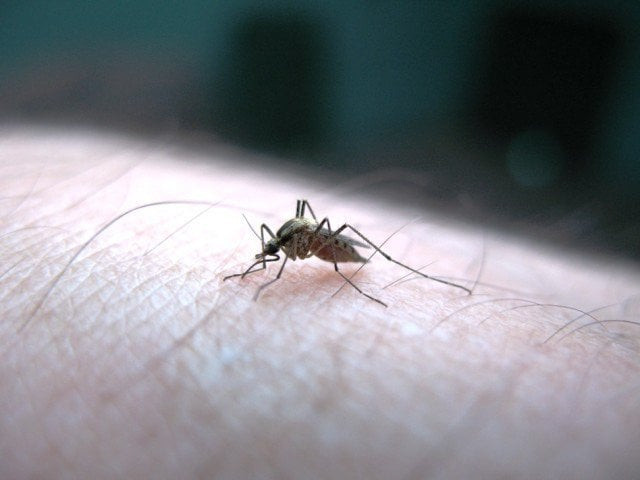'Awareness key to curb vector-borne diseases'
Leading health expert stresses importance of early detection & preventive measures

As cases of chikungunya, dengue, and malaria rise, Dr Faisal Mehmood, a leading health specialist, has underscored the urgent need for public education and effective mosquito control measures to combat these viral diseases. Speaking to a private news channel, Dr Mehmood highlighted that early detection is vital for managing mosquito-borne illnesses.
He advises anyone experiencing symptoms like fever, joint pain, or rashes following a mosquito bite to seek medical attention immediately. Dr Mehmood stressed that the best way to prevent these diseases is by avoiding mosquito bites. Recommendations include wearing protective clothing, using insect repellents, and ensuring that windows and doors are properly screened.
Dr Mehmood also emphasised the importance of eliminating mosquito breeding sites in homes and communities. He encourages regular checks for standing water in flowerpots, tires, and other containers, which serve as prime breeding grounds for mosquitoes. He advocates for community-led initiatives, public awareness campaigns, and collaboration across sectors to promote preventive measures and enhance community participation.
In response to questions about the differences between dengue and chikungunya, Dr Mehmood explained that while both diseases are transmitted by mosquitoes, they present distinct clinical symptoms. Chikungunya is marked by sudden fever, severe joint pain, headaches, and rashes, with joint pain potentially lasting for months or even yearsa condition often referred to as "break-bone fever." In contrast, dengue typically features severe bleeding manifestations.
"Diagnosing these diseases can be challenging due to overlapping symptoms," Dr Mehmood cautioned, noting that accurate diagnosis requires laboratory confirmation through molecular tests or serology. While there is no specific treatment for dengue or chikungunya, he emphasized that supportive care and symptom management are critical. Rest, hydration, and pain relief are essential for alleviating symptoms and preventing complications.
"Prevention remains the cornerstone of controlling these diseases," Dr Mehmood reiterated, stressing that vector control measures, public awareness, and personal protective equipment are crucial for reducing the transmission of dengue and chikungunya.


















COMMENTS
Comments are moderated and generally will be posted if they are on-topic and not abusive.
For more information, please see our Comments FAQ